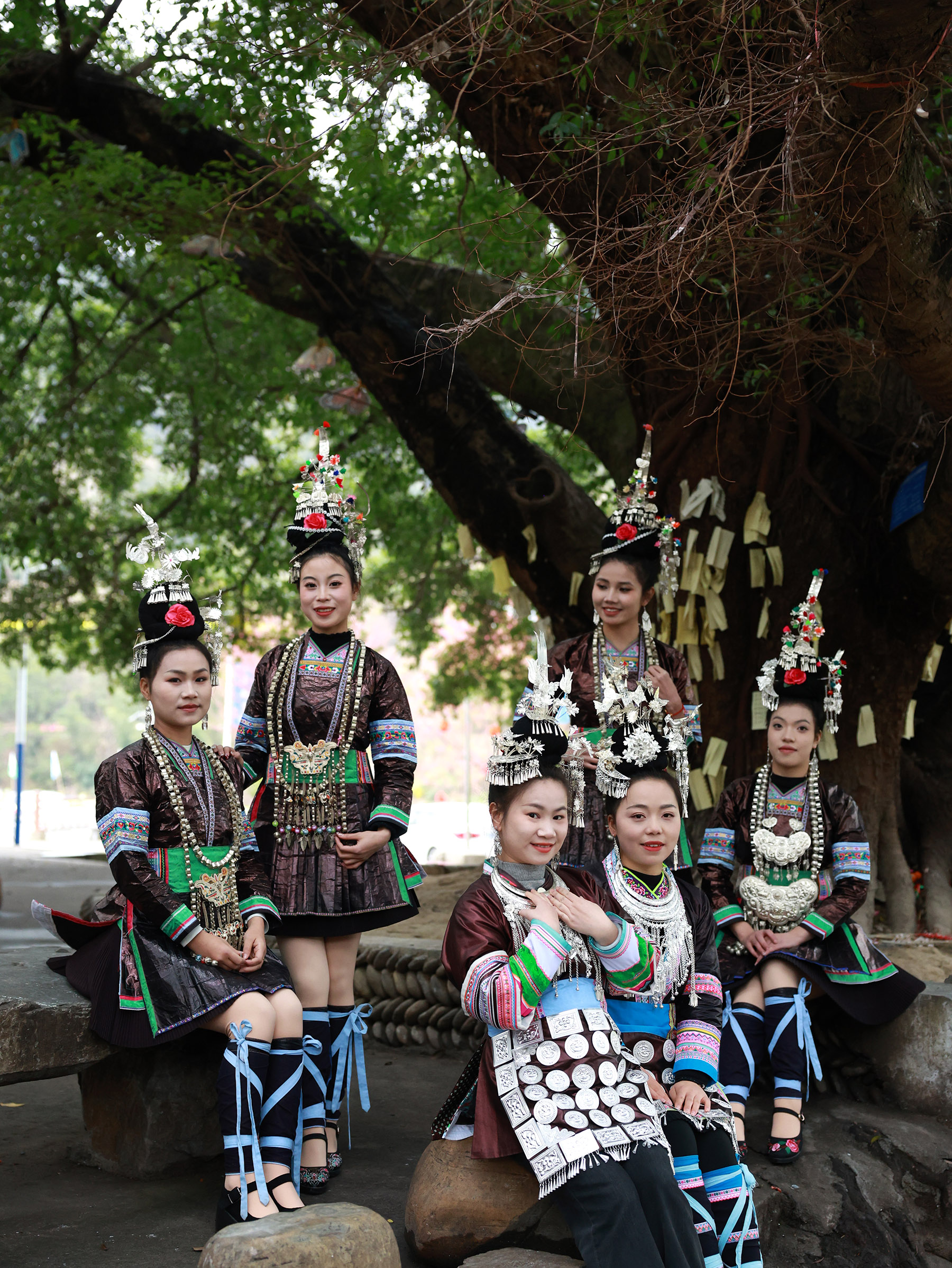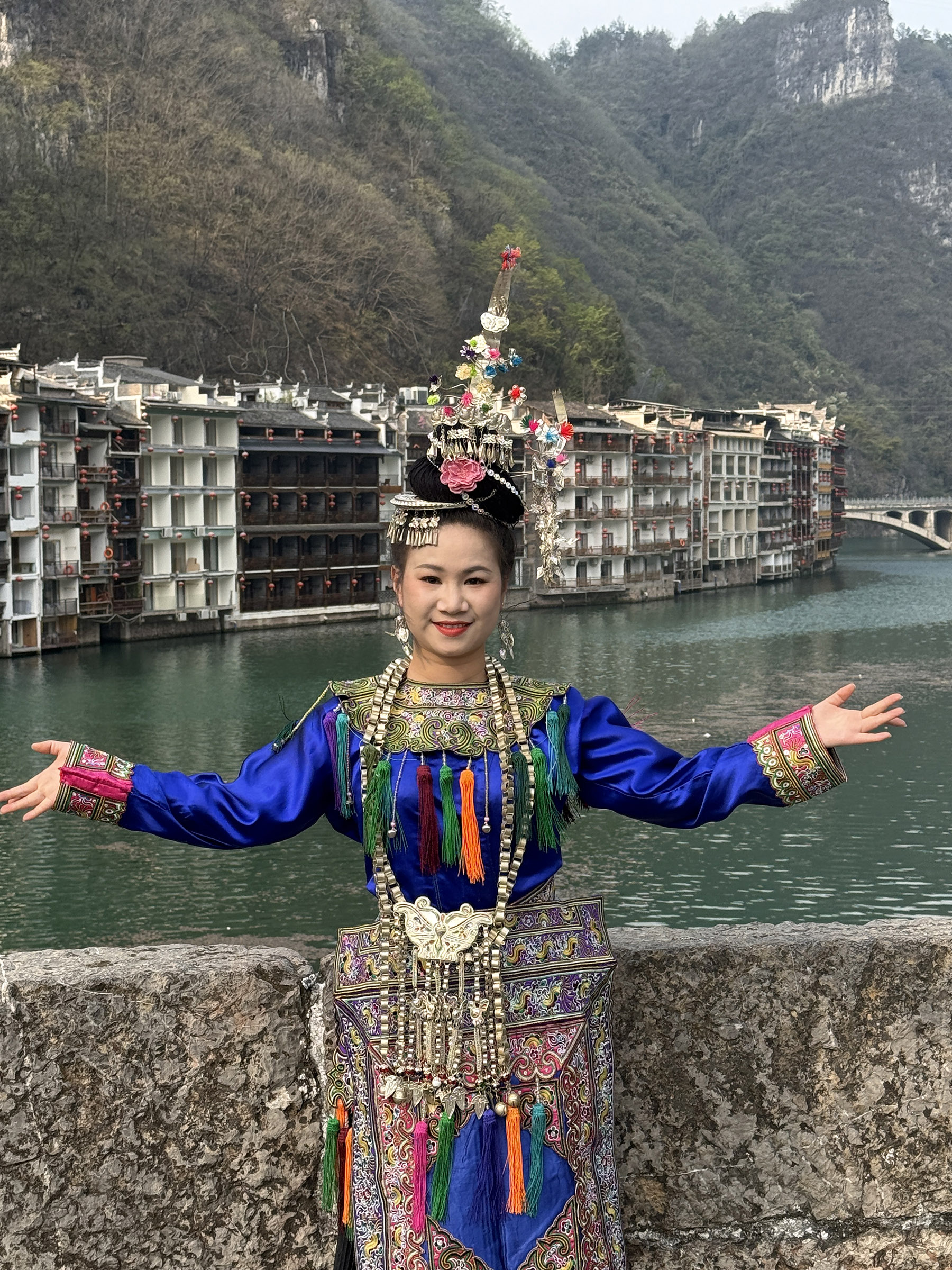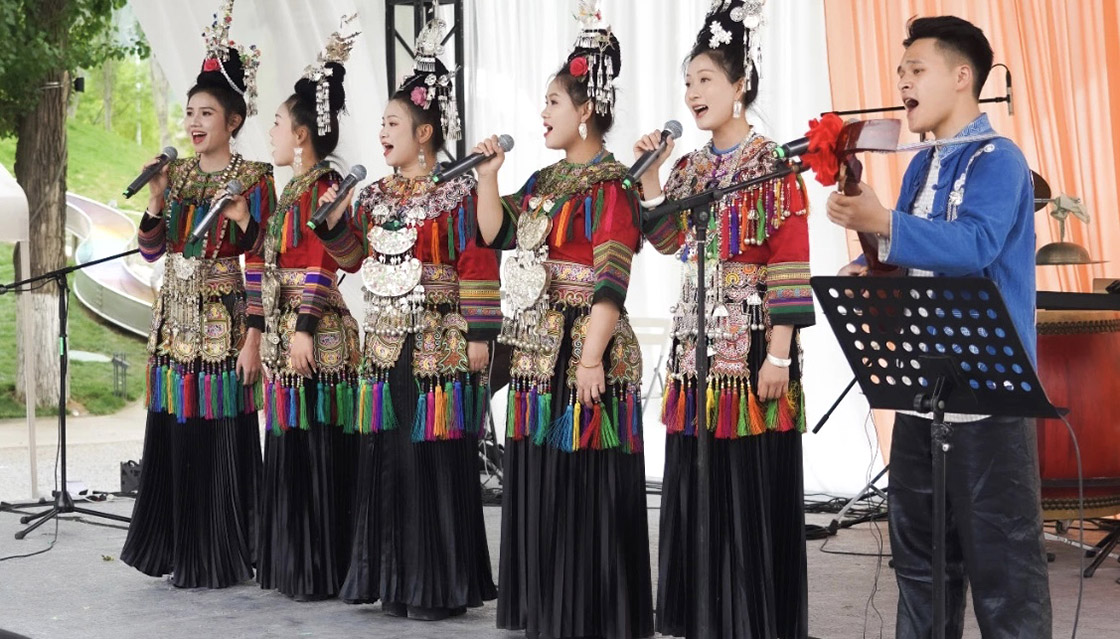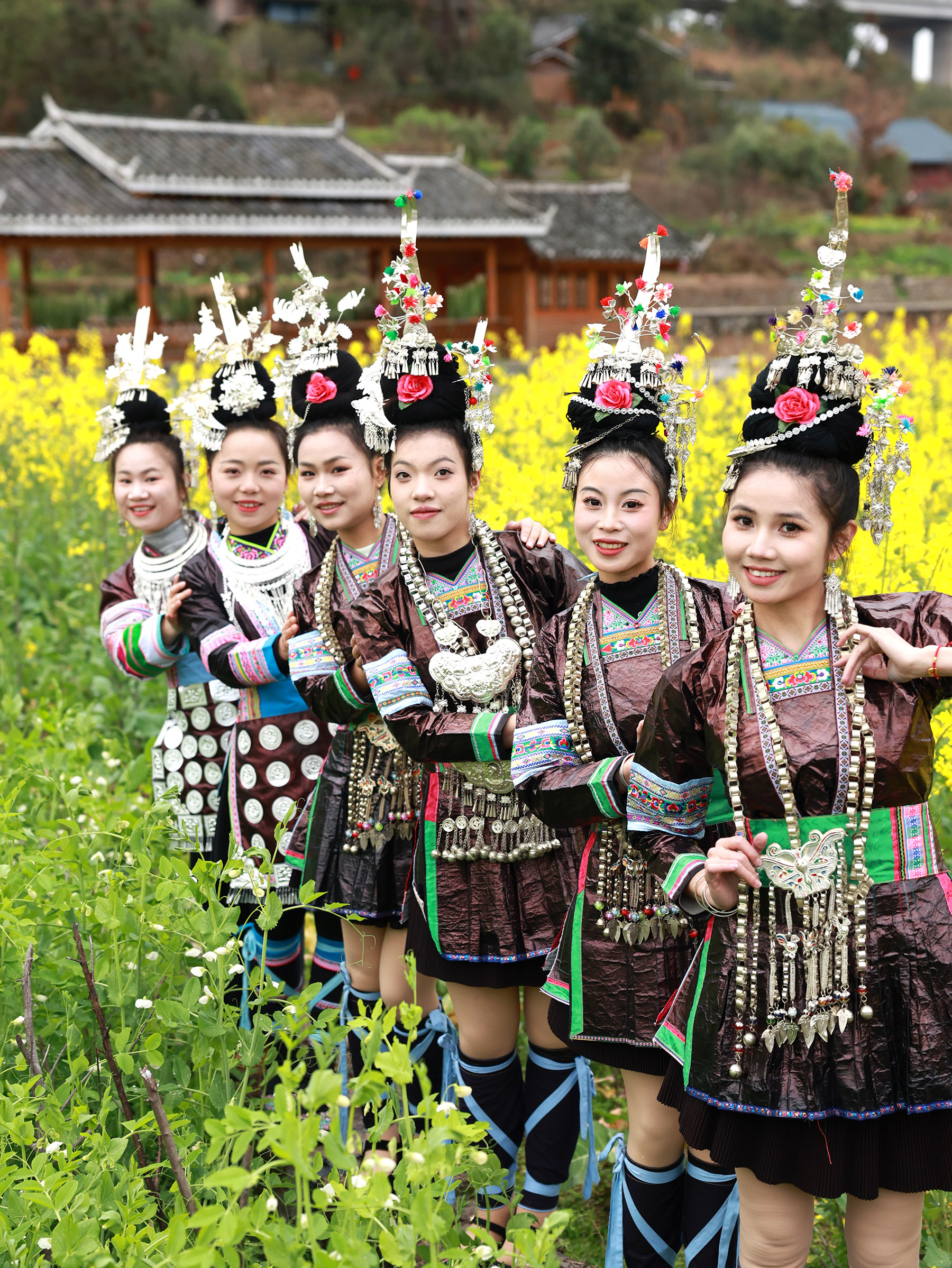Chorus group works to preserve unique musical heritage from China's mountainous regions, Chen Nan and Yang Jun report.

Like many families across China, Yang Xiangni, 28, spent the Spring Festival holiday this year with her loved ones, watching the country's biggest box-office sensation, Ne Zha 2, in the cinema.
It was Jan 29, 2025 — the first day of the Chinese New Year — and the atmosphere was electric with excitement and anticipation. For Yang, sitting in the theater alongside her family, the experience was far from ordinary.
While the audience around her was swept away by the onscreen spectacle, she had a unique connection to the opening scene — her voice, along with those of her team, echoed throughout the theater, creating a powerful, unforgettable moment.
READ MORE: A tradition worth dyeing for
As the screen lit up, a delicate lotus flower slowly unfurled — a visual metaphor for the film's mystical world. Sung by Yang and her collaborators, the opening song filled the theater with a hauntingly beautiful melody, evoking the ancient and otherworldly essence of the story. The melody, drawn from the traditional Grand Song of the Dong ethnic group, transported viewers to a mythical realm where history and legend intertwine.
The Grand Song, known as Dongzu Dage, is a unique and ancient form of choral music from the Dong ethnic group that primarily lives in the mountainous regions of southern China.
Unlike most traditional Chinese music, which tends to be monophonic (a single melody), the Dongzu Dage is polyphonic, with multiple independent lines sung simultaneously to create a rich, harmonious sound that captivates listeners.
Typically sung a cappella, the harmonies are complex. Singers often rely on their vocal strength and ability to harmonize in ways not commonly found in other traditional music.
In 2009, UNESCO inscribed the Grand Song of the Dong ethnic group on the Representative List of the Intangible Cultural Heritage of Humanity.

In August 2023, Yang Rui, a composer for Ne Zha 2, who focuses on integrating traditional music into film, came across a video on the popular Chinese social media platform Bilibili. It showcased Yang Xiangni and her team performing the Grand Song of the Dong ethnic group.
"The raw, natural beauty of the performance immediately captivated me," said Yang Rui in an interview. "The music was perfect for the scene where two characters sit gracefully atop large, radiant lotus flowers. The flowers, delicate yet expansive, add a spiritual aura to the setting.
"When I heard the performance, I was shaken by the sound. I knew this was the voice I had been searching for," Yang Rui added.
Inspired by the idea of blending this ancient musical style with the film's score, Yang Rui reached out to Yang Xiangni, who is deeply involved in preserving Dong culture in her hometown of Rongjiang county, Guizhou province.
"They didn't see any visuals from the film until the recording was finished. They only had the audio and sheet music — everything else was imagined," recalls Yang Xiangni. "The singing is very different from what we're used to, and there were a lot of key changes. The singing was more difficult."

As Ne Zha 2 became a massive hit — earning an astonishing 15.8 billion yuan ($2.19 billion) globally since its Spring Festival debut, making it the world's fifth-highest-grossing film — Yang Xiangni and her team gained recognition, leading to more opportunities to perform nationwide, including Beijing, Suzhou and Yancheng in Jiangsu province and Nanning in the Guangxi Zhuang autonomous region.
"For me and my team, this was more than just a professional collaboration; it was a way to preserve a cultural treasure while sharing it with a global audience," says Yang Xiangni.
Born in Sanbao village in Rongjiang county, Guizhou, home to many of the Dong ethnic group, Yang Xiangni graduated from the music school of Guizhou University in 2020.During her studies, she honed her vocal techniques and immersed herself in the Dong's ancient songs, becoming inspired to preserve her heritage.
"The Dong's Grand Song is a cultural treasure that carries the memories of our ancestors. But it is not an antique in a museum; it is a living, communicative civilization," says Yang, who made her stage debut at age 6.

After graduating, she returned to her hometown and established weekend public welfare classes to teach the Grand Song to children in her village and surrounding areas.
In 2023, she founded the ensemble Wuyue Chan'ge, a music group of graduates and students with a music major in Guizhou's schools, mostly born in the 1990s and 2000s. The group's average age is 25.
Aside from performing, the group visits Dong villages to collect ancient songs at risk of being forgotten. They also use social media to teach Dong music to a broader audience.
ALSO READ: Raising their voices
"I grew up listening to Dong songs. To me, they are a love that runs deep in my bones," says Luo Youmei, a member of the ensemble and graduate of the music and dance department at Guizhou Minzu University.
"When I learned that the band was dedicated to preserving and promoting Dong songs, it immediately resonated with my own aspirations. Dong songs are cultural treasures that face a crisis of inheritance gaps. I believe their preservation must honor traditional charm while embracing bold innovations."
Contact the writers at chennan@chinadaily.com.cn


